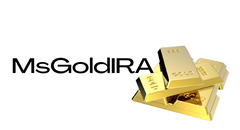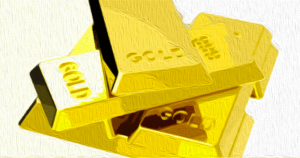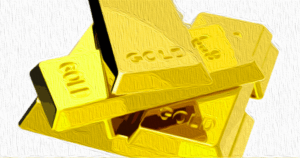
Bitcoin Network's Average Transfer Fee in 2024
Recent data analysis spanning the last 36 days indicates that the average transfer fee on the Bitcoin network has consistently remained above $3.68. Even for median-sized transactions, the costs have not gone below the $1.67 threshold. As of February 6, 2024, there is a significant backlog of 221,799 transactions awaiting confirmation, as revealed by Bitcoin's transaction queue.
Bitcoin Transfer Fee Trends in the First Five Weeks of 2024
The latest data from Tuesday suggests that although network transaction fees in 2024 are still substantial, they have not reached the peak levels observed in mid-December 2023. For instance, on December 17, 2023, the average transaction fee spiked to $37.67 per BTC transfer. However, during the initial five weeks of 2024, the average fee has stabilized at $9.39 per transaction across all 36 days.
Peak Day for Bitcoin's Network Transaction Fees in 2024
January 2 marked the peak day for Bitcoin's network transaction fees in 2024, with the average transfer cost reaching $17.32 per transaction. On January 28, the average fee dropped to $3.68 per transaction, the lowest recorded in 2024. It is important to note that average-sized bitcoin fees, calculated by dividing the total transaction fees within 24 hours by the transaction count, give an overall sense of cost but may be influenced by abnormally high or low fees.
Median-Sized Bitcoin Fees in 2024
In contrast to average fees, median-sized bitcoin fees provide a more accurate measure of the typical expense for users, as they identify the central value in a dataset of daily transaction fees when sorted. For 2024, the average median BTC fee per transaction is $4.02. The highest fee day was observed on January 14 at $10.28 per transfer, while the lowest median-sized fee occurred on January 27, dropping to $1.67 per transaction.
As of February 6, 2024, the fee rate for high-priority transactions at 9:00 a.m. Eastern Time (ET) ranges between 18-29 satoshis per virtual byte. According to Mempool.space metrics, the mempool (Bitcoin's transaction queue) is currently congested with 221,799 pending transactions.
Weekly Transaction Fee Trends
During the last week, the average transaction fee stood at approximately $8.40 per transfer. The highest fee day occurred on Saturday, February 3, with an average cost of $14.86 per transaction. On the other hand, the lowest fee day was recorded on January 30, dropping to $4.27 per transfer.
What are your thoughts on the Bitcoin network's transaction fees in 2024? Feel free to share your opinions and insights in the comments section below.
Frequently Asked Questions
Are you able to keep precious metals in your IRA?
The answer to that question will depend on whether the IRA owner plans to diversify his holdings to gold and/or keep them safekeeping.
Two options are available for him if diversification is something he desires. He could purchase physical bars of gold or silver from a dealer and then sell these items to him at the end. Let's say he doesn’t want to sell back his precious metal investment. He should keep them, as they are perfectly safe to be stored in an IRA account.
What are the fees for an IRA that holds gold?
The average annual fee for an individual retirement account (IRA) is $1,000. There are many types and types of IRAs. These include traditional, Roth or SEP-IRAs as well as SIMPLE IRAs. Each type of IRA has its own rules and requirements. If your investments are not tax-deferred, you might have to pay taxes on the earnings. It is important to consider how long you plan on keeping the money. If you have a long-term goal of holding on to your money, you'll be able to save more money if you open a Traditional IRA.
A traditional IRA allows for contributions up to $5500 ($6,500 if older than 50). A Roth IRA gives you the ability to contribute unlimited amounts per year. The difference is simple. With a traditional IRA you can withdraw the money when you retire and pay no taxes. You'll owe tax on any Roth IRA withdrawals.
Should you open a Precious Metal IRA
Answers will depend on whether you have an investment goal or how high you are willing and able to tolerate risk.
An account should be opened if you are planning to use the money in retirement.
It is likely that precious metals will appreciate over the long-term. You can also diversify your portfolio with them.
Additionally, silver and gold prices tend to move in tandem. They are therefore a better option for investing in both assets.
You shouldn't invest precious metal IRAs if you don't plan on retiring or aren't willing to take risks.
Statistics
- The maximum yearly contribution to an individual's IRAs is currently $6,000 ($7,000 for those 50 years or older), or 100% of earned income, whichever is less. (monex.com)
- You can only purchase gold bars of at least 99.5% purity. (forbes.com)
- To qualify as IRA allowable precious metals and be accepted by STRATA, the following minimum fineness requirements must be met: Gold must be 99.5% pure, silver must be 99.9% pure, and platinum and palladium must both be 99.95% pure. (stratatrust.com)
- Silver must be 99.9% pure • (forbes.com)
External Links
forbes.com
- Gold IRA, Add Some Sparkle to Your Retirement Nest egg
- Understanding China's Evergrande Crisis – Forbes Advisor
takemetothesite.com
investopedia.com
regalassets.com
How To
How to Determine if a Gold IRA is Right for You
Individual Retirement accounts (IRAs) are the most common type of retirement account. IRAs may be obtained from financial planners or banks as well as mutual funds and banks. Individuals can contribute as much as $5,000 per year without any tax consequences. You can contribute this amount to any IRA regardless of your age. You can only put a certain amount into an IRA, but there are restrictions. A Roth IRA is only available to those who are at least 59 1/2. If you're under 50, you must wait until you reach age 70 1/2 before making contributions. Additional, employees who work for their employer might be eligible to receive matching contributions.
There are two main types of IRAs: Traditional and Roth. Traditional IRAs allow you to invest in stocks, bonds and other investments. A Roth IRA allows you to only invest in after-tax dollars. Contributions to a Roth IRA aren't taxed when they come out, but withdrawals taken from a Roth IRA are taxed once again. Some people choose to use a combination of these two accounts. Each type has its advantages and disadvantages. Before you decide which type of IRA is right for you, what are the pros and cons? These are the three main things you need to remember:
Traditional IRA Pros
- Contribution options vary by company
- Employer match possible
- It is possible to save more than $5.000 per person
- Gain tax-deferred until withdrawal
- There may be restrictions based upon income level
- Maximum annual contribution is $5,500 ($6,500 for married couples filing jointly).
- The minimum investment is $1,000
- After age 70 1/2, you must begin taking mandatory distributions
- For an IRA to be opened, you must have at least five-years-old
- You cannot transfer assets between IRAs
Roth IRA pros:
- Contributions are exempt from taxes
- Earnings can grow tax-free
- No minimum distribution required
- Only stocks, bonds, mutual funds are available as investment options.
- There is no maximum contribution limit
- Transfer assets between IRAs is possible without restrictions
- Open an IRA if you are 55 years or older
When opening a new IRA it's important to realize that not all companies offer identical IRAs. Some companies provide the choice of a Roth IRA as well as a traditional IRA. Some will let you combine them. Noting that different types IRAs have different requirements, it's worth noting. Roth IRAs have no minimum investment requirements, while traditional IRAs require a minimum $1,000 investment.
The Bottom Line
When you are choosing an IRA, it is crucial to consider whether you will pay taxes now or in the future. A traditional IRA is a good choice if you expect to retire within ten. Otherwise, a Roth IRA may be better suited for you. However, it's always a good idea for you to talk with a professional regarding your retirement plans. A professional can help you determine the best option for your situation and keep track of what's going on in the market.
—————————————————————————————————————————————————————————————-
By: Jamie Redman
Title: Onchain Bitcoin Fees in 2024: A Closer Look at Transaction Costs and Delays
Sourced From: news.bitcoin.com/onchain-bitcoin-fees-in-2024-a-closer-look-at-transaction-costs-and-delays/
Published Date: Tue, 06 Feb 2024 21:30:44 +0000











